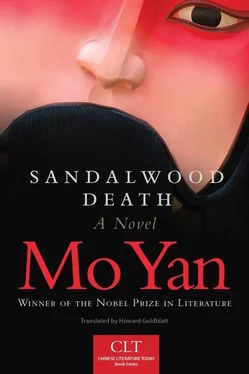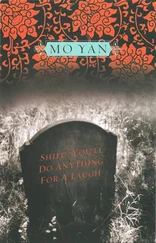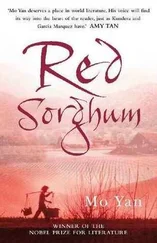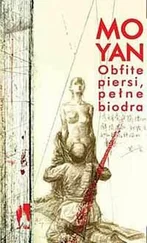At the height of my arc, above the public wall, I could see the warren of houses in town; I also saw the cobblestone street in front of the yamen and rows of tiled buildings in my gandieh’s official compound. I saw his four-man palanquin being carried out through the ceremonial gate, led by a black-clad yayi in a red cap who banged a gong to clear the way. He was followed by two rows of yayi dressed the same way, carrying tall poles with banners of his official insignia, sunshades, and fans. Two sword-bearing guards walked directly ahead of the chair, holding the shafts with one hand. The procession behind the chair included the secretaries of the six bureaus and personal servants. Three long and one short clangs of the gong were followed by impressive shouts; the palanquin barriers moved with swift, nimble steps, as if their legs had springs. The chair rose and fell rhythmically, like a boat tossed on ocean swells.
My gaze carried beyond the town, to the northeast, where the German-built rail line was crawling our way from Qingdao like an elongated insect with a crushed head, trying to squirm forward. A swarm of men on fields bursting with early spring green sprouts waved multicolored banners, heading for the railroad tracks. At the time, I did not know that my dieh was leading the rebellion; if I had, I would not have been so self-indulgent on the swing set. I watched as black smoke billowed from spots along the tracks, like dark trees on the move. Thudding sounds came on the wind.
My gandieh’s procession drew ever nearer to the city’s South Gate. The sound of the gong grew crisper by the minute, the shouted commands clearer. Banners hung low in the drizzle, like bloody dog pelts. I saw beads of sweat on the carriers’ faces and heard their labored breathing. People lined the street, heads bowed, afraid to make a sound or a false move. Even the notoriously vicious dog that belonged to Provincial Scholar Lu knew better than to bark. Anyone could see that my gandieh was a more intimidating presence than Mt. Tai, since even animals shied away from him. The buildup of heat in my heart was like a stove warming a decanter of wine. My dearest, thoughts of you have entered the marrow of my bones; you are steeping in a decanter of wine. I stood tall on the swing seat to give him an unobstructed view of my figure when he looked through the parted curtain.
From my perch I could see the black-haired mob—a ground-hugging cloud of humanity—though at that distance they all—man or woman, young or old—looked alike. I have to admit that the waving banners dazzled my eyes. You were all yelling and shouting—truth is, I couldn’t hear any of you, but I’d have been surprised if you weren’t shouting. My dieh was an opera singer, a second-generation Maoqiang Patriarch. Maoqiang had emerged from the masses as a minor form of popular drama, and prospered thanks to my dieh: it traveled north to Laizhou, south to Jiaozhou, west to Qingzhou, and east to Dengzhou. In all, it gained popularity in eighteen counties. When Sun Bing sang, women wept. He was always ready to shout something, so how could he not shout with such a martial following? This was too good a scene to miss. I pushed harder to get a better look. The nitwits on the ground, who assumed that I was merely putting on a show, were dancing joyously, all of them, dizzy with the thought that I was doing it for them. I was wearing only a thin garment that day, yet I was sweating—my gandieh liked to say that my sweat smelled of rose petals—and I knew that those two little darlings on my chest were in full view. With my bottom sticking out in back and my breasts jutting out in front, I gave those lecherous little devils an eyeful. Cool breezes found their way under my clothes and made little eddies in my armpits. There was a mixture of sounds—of wind and rain, of peach blossoms opening and drooping heavily with rainwater. Shouts from the yayi, the urgent cries of the metal rings, the hawking of peddlers, and the lowing of calves formed a chorus. It had turned into a lively Qingming Festival, a flourishing third day of the third month. White-haired old women burned spirit money in an ancient cemetery in the southwest corner; dust devils curled the smoke straight up, little white arboreal columns that merged with the stand of dark trees. My gandieh’s procession finally passed through South Gate and immediately caught the attention of the gawking crowd below. “His Eminence the County Magistrate is coming!” someone shouted. As the procession made a full turn around the parade ground, the yayi perked up, throwing out their chests and sucking in their guts, eyes staring straight ahead. Gandieh, I see your feathered cap through the gaps in your bamboo curtain, and I see your square, ruddy face. You have a long beard, so straight and wiry-stiff it will not float if immersed in water. That beard is what binds our hearts together, the red silk thread cast down by the man in the moon. If not for your and my father’s beards, where would you have found such a sweet melon as me?
Once the yayi had paraded their prestige, which, in truth, came from you, they set the palanquin down at the edge of the parade ground. Flowers bloomed in profusion on peach trees bordering the ground, producing a fine pink mist in the drizzle. A yayi with a sword on his hip parted the curtain to let you emerge from the palanquin. You straightened your feathered hat, shook the wide sleeves of your official robe, clasped your hands, brought them up to your chest, and bowed to us all.
“Local elders,” he said in a booming voice, “citizens, a joyous holiday to you!”
That was just an act. I thought back to when you and I were frolicking in the Western Parlor, and could barely keep from laughing out loud. But when I thought of all you had suffered this spring, I was on the verge of tears. I stopped swinging and, steadying myself with the ropes, stood still on the seat. My lips were pursed, my eyes moist, my heart assailed by waves of emotion—bitter, acrid, sour, and sweet—as I watched my gandieh put on a show for the monkeys.
“In this county we have long promoted the planting of trees,” he said, “especially peach trees——”
His lackey from the Southern Society, Junior Officer Li, cried out:
“His Eminence sets an example for us all; he is first in all things. On this drizzly Qingming day, he has come to plant a peach tree to bring blessings to the common people…”
My gandieh greeted this interruption with a stern look at Li, then continued:
“Citizens, go back to your homes and plant peach trees, in front and in back, and on the borders of your fields. Citizens, as the poet reminds us, ‘Spend less time meddling in others’ affairs and idling in the marketplace, and more on reading good books and planting trees.’ In fewer than ten years, Gaomi County will enjoy wonderful days. The poem also says, ‘Thousands of trees with peach-red flowers, the people sing and dance, celebrating world peace.’ ”
After intoning the lines of poetry, he picked up a shovel and began to dig. Just as his shovel hit a buried rock and sent sparks flying, Chunsheng, who hardly ever left his side, rolled up to him like a dirt clod and fell frantically to one reverent knee.
“Laoye,” he said breathlessly, “it’s bad, really bad.”
“Bad?” my gandieh demanded. “What’s bad?”
“The unruly citizens of Northeast Township are in revolt!”
Without a word, my gandieh dropped the shovel, shook his sleeves, and climbed back into his palanquin. The bearers picked it up and ran with it on their shoulders, followed by a contingent of yayi, who stumbled along like a pack of homeless curs.
Gripped by ineffable dejection, I watched the procession head away from me. Gandieh, you have ruined a perfectly good holiday. Listlessly I alighted from my perch and walked into the clamorous crowd, where I was manhandled by little imps as I tried to decide whether to lose myself in the grove of peach trees and all those flowers or go home and prepare some dog meat. Before I could make up my mind, Xiaojia, my dullard husband, strode vigorously up to me, his face beet red, eyes wide, lips trembling.
Читать дальше












